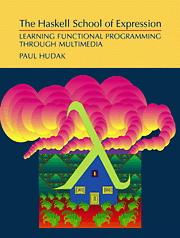-
2014-05-19 by Charlie HarveyGerrard Winstanley has become, in recent years, a revered figure on the left, especially in anarcho and socialist circles. Gurney charts his life, contributions and how those contributions have been interpreted in a thoroughly enjoyable journey from Winstanley’s early life in Wigan, through his mystical writings to his famous land-squat at Georges Hill to his later writings and complicated legal post-Digger life. Fascinating.
-

2014-05-19 by Charlie HarveyI found this an ins[riing read. Starting with the transformation of Bogota to serve the interests of all the people who live their, not just the motorists, Montgomery tells the story of uran, car-centric sprawl and the other ways we might want to build. Very much in the tradition of Jane Jacobs, et al, but with insights from behavioural economics and other fields thrown in for good measure. I am fairly certain that a lot of the content is far from scientifically presented, and some of the evidence cited is sketchy as hell. But I agree with much of what Montgomery has to say, especially that our cities should be as heterogeous, chaotic and messy as their inhabitants rather than constructed as strictly delineated, centrally dictated environments where residents have little meaningful say in the design of their lives.
-

2014-05-05 by Charlie HarveyThe State increasingly tells us that it has no power to change the inevitable course of the free market, whilst at the same time creating, directing and manipuating that same market. Lindsay exposes the functional division of shallow and deep forms of state power that allows this paradox to persist. He situates his analysis against a background of a crisis in state legitimacy brought about by total surveillance and advanced forms of coercive power that the state can mobilize. Lindsay is clear, balanced and persuasive and this is some of the most compelling anarchist writing or, indeed, political theory that I’ve read in a while.
-

2014-05-05 by Charlie HarveyI picked this up at Blackwells on spec. The book, along with its companion website introduces Haskell through the medium of multimedia. Which is possibly more fun than introducing Haskell through the medium of category theory, at least for many people. I found Hudak’s accessible style helped the clear presentation of the material. I have to admit I’ve not done the excercises, but I did spend rather more time than I would have liked getting the book’s supporting SOE library working.